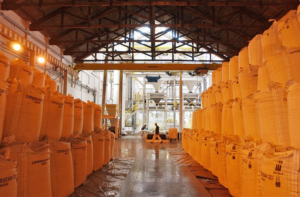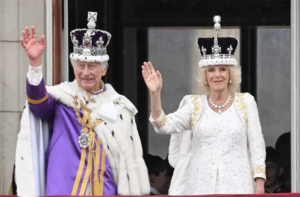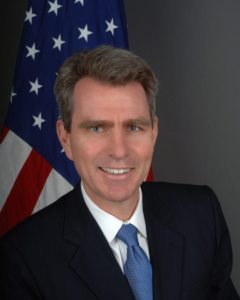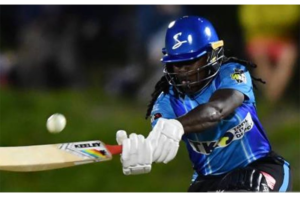Power of the Media
By Stanford Conway
SKN News Source.com
BASSETERRE, St. Kitts – THE aim of this commentary is to sensitise the general public, including the ‘Johnny-come-lately journalist’, on the role of the media; especially privately-owned media houses.
- Definition of Media: Media can be defined as communication channels through which news, entertainment, education, data or promotional messages are disseminated. The channels used are radio, newspapers, magazines, television, billboards, direct mail, telephone, fax and the internet.
- Role of the Media: To inform, teach, educate and entertain.
MANY people in St. Kitts and Nevis, like millions the world over, do not understand the role of the media. They perceive journalists as a group of inquisitive individuals pursuing them, and even invading their privacy, to get information on an event or issue that they may deem personal.
On the one hand, some of them are correct in their perception because there is a category of journalists who are glory-hunters. In their quest for fame they colour most news articles; exempt accuracy and omit balance and fairness.

Many of us are engaged in “Yellow Journalism”, which is a pejorative reference to journalism that features scandal-mongering, sensationalism, jingoism or other unethical or unprofessional practices by news media organisations or journalists.
On the other hand, people need to understand that the role of the media is to inform, teach, educate and entertain. And to this end, the media is often in conflict with governments, political parties and a number of other institutions.
Journalism is a discipline of gathering, writing and reporting of events at the local, national, regional and international levels in a timely manner. And the role of the media was intended to be there to ensure they get to the bottom of things to disseminate to the public.
Journalists got to get to the truth, and I use the word truth advisably, but not to partner with power brokers for the ambition of a media house, editor or director and believing by following certain partnerships is good for the well-being.
As a matter of fact, it may be good for that particular journalist’s well-being but not for the country. You have to have an approach that is consistent, regardless with whom you are dealing; whether you are dealing with someone you like or someone you don’t like. It must be balanced. You must be able to withstand criticism and you must be able to give everyone the right to be heard…everyone must have their say in the media.
- GOVERNMENT-RUN MEDIA: Government media are that part of a government, which function as its mouthpiece. It is also called state-owned media; a media, that works for mass communication, which is ultimately controlled and funded by the state. The news outlets may be the sole media outlet or may exist in competition with privately-controlled media. Some critics claim that government media are not media by themselves, only appendages of the government.
They remain in contrast with privately-owned media that have no direct control from any political party. Critics argue that state media are not media in a true sense; they are nothing more than the mouthpiece of the government. Their loyalty, first to the government, restricts their aim to act as the voice of the voiceless. In this regard, state-owned media serve a particular interest group and not the general public.
In some cases, state media can be used frequently by the autocratic government as propaganda tools. They suffer deliberate manipulations of contents by the ruling party, which reduces their efficiency and credibility.
An administration may censor the content that it deems illegal, immoral, or unfavorable to the government; hence, state-owned media are not independent of the governing party. Some governments also compel journalists’ affiliation with the ruling party like in Russia, China, North Korea and Cuba, among others. Within countries with high level of government interference, it may use the state media for propaganda purposes.
State media, in many situations, may be used to promote the regime in a favorable light, vilify opposition by launching smear campaigns, give skewed coverage to oppositional views or to act as a mouthpiece to advocate the regime’s ideology.
On the other hand, state media may only report on legislation after it has already become law to stifle any debate. It reduces the sphere of ideological conflicts. People are led to follow an existing ideology that might not serve the needy, but certain interest groups instead.
- DEREGULATION OF THE MEDIA:
Media deregulation refers to the process of removing or loosening government restrictions on the ownership of media outlets. It limits government’s control over media companies.
Advocates of media deregulation argue that it restores the natural market forces of the media industry, making media companies more efficient and profitable. Opponents of media deregulation say that it lessens minority access to the media and hurts journalistic integrity, because those aspects of the media are not profit-driven.
- INVESTIGATIVE JOURNALISM: – In the service of the Public Interest, our purpose is to uncover corruption, injustice, maladministration and lies. As a duty to readers and viewers as well as self-protection in a hostile legal environment, investigative journalism seeks above all to tell the documented truth in depth and without fear or favour. It is to provide a voice for those without one and to hold the powerful to account. It is to comfort the afflicted and afflict the comfortable.
Is it critical and thorough? Yes, but investigative journalism is skeptical and keen to bring information that someone wants to be keep secret, into the public domain.
It is a form of journalism in which reporters deeply investigate a single topic of interest, such as serious crimes, political corruption, or corporate wrongdoing.
An investigative journalist may spend months or years researching and preparing a report. It is a primary source of information sometimes called “watchdog journalism”
An investigative reporter may make use of one or more of these tools, among others, on a single story:
- Analysis of documents, such as lawsuits and other legal documents, tax records, government reports, regulatory reports, and corporate financial filings;
- Databases of public records;
- Investigation of technical issues, including scrutiny of government and business practices and their effects;
- Research into social and legal issues;
- Numerous interviews with on-the-record sources as well as, in some instances, interviews with anonymous sources (for example whistleblowers); and
- Federal or state Freedom of Information Acts to obtain documents and data from government agencies.
SPIN DOCTORS: – In public relations, spin is a form of propaganda, achieved through providing an interpretation of an event or campaign to persuade public opinion in favor or against a certain organization or public figure. While traditional public relations may also rely on creative presentation of the facts, “spin” often implies disingenuous, deceptive and/or highly manipulative tactics.
Politicians are often accused by their opponents of claiming to be honest and seek the truth while using spin tactics to manipulate public opinion. Because of the frequent association between spin and press conferences (especially government press conferences), the environment in which these take place is sometimes described as a spin room.
A group of people who develop spin may be referred to as “spin doctors” who engage in “spin doctoring” for the person or group that hired them.
DISCLAIMER
This article was posted in its entirety as received by SKN News Source.
This media entity does not correct any spelling or grammatical error
within press releases and commentaries. And the views expressed
therein are definitetly not those of SKN News Source, neither its
sponsors nor advertisers.










